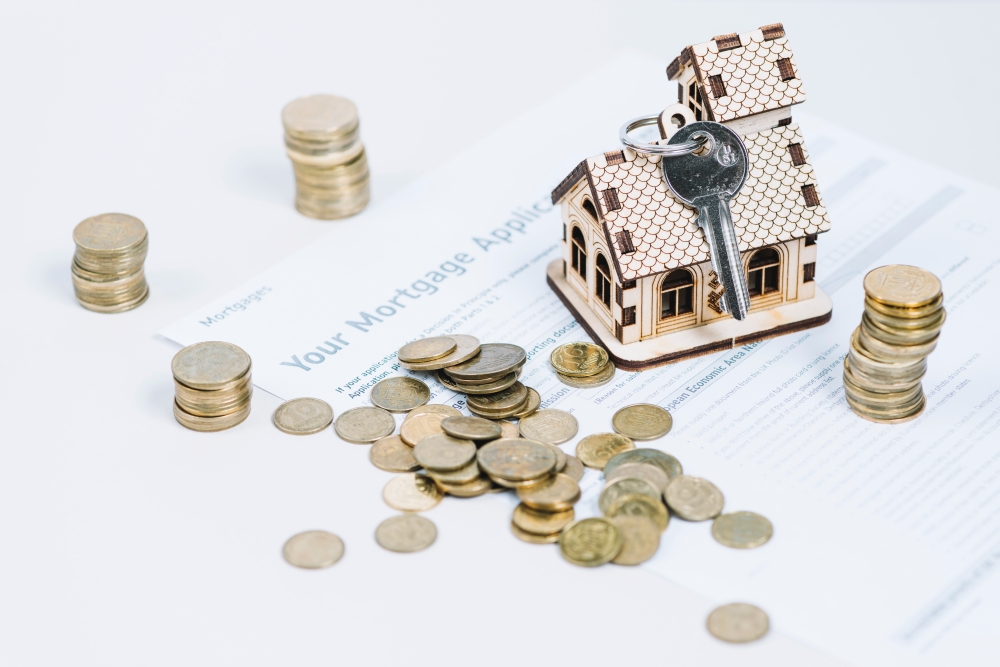
Decoding Loan Eligibility: How Much Can You Borrow?
Embarking on your homeownership journey is undoubtedly exciting, but it also requires careful financial planning. One of the crucial steps is understanding your loan eligibility – essentially, how much you can borrow to finance your dream home. This is especially important if you’re considering a private property loan in Singapore, as these often involve larger loan amounts.
Knowing your borrowing capacity also empowers you to set realistic expectations, refine your property search, and ultimately make informed financial decisions. You might even discover that you have the capacity to refinance home loan options in the future to secure better terms.
Table of Contents
ToggleFactors That Influence Loan Eligibility
There are several key factors that come into play when determining how much you can borrow for your dream home. Understanding these factors allows you to optimise your financial standing and maximise your borrowing potential.
- Income: Your annual income, including your base salary, bonuses, and allowances, plays a significant role in your home loan application. Lenders assess your income stability and consistency to gauge your ability to manage monthly repayments. Generally, the higher your income, the larger the loan you can qualify for.
- Credit Score: Your credit score is a numerical representation of your creditworthiness. It reflects your credit history, including repayment patterns, outstanding debt, and credit utilisation. A healthy credit score signals a lower risk to lenders, potentially leading to more favourable loan terms and a higher borrowing capacity.
- Existing Debt: Outstanding debts, such as car loans, personal loans, or credit card balances, can impact your borrowing capacity. Lenders consider your existing debt obligations when assessing your ability to manage additional debt. A high level of existing debt may limit the loan amount you can qualify for.
- Property Value: The value of the property you intend to purchase also influences your loan eligibility. Lenders use the Loan-to-Value (LTV) ratio to determine the maximum loan amount and tenure. It represents the loan amount as a percentage of the property value. If the LTV ratio is 75%, you can borrow up to 75% of the property value, with the remaining 25% as a downpayment.
Understanding the Total Debt Servicing Ratio (TDSR)
In Singapore’s financial landscape, the Total Debt Servicing Ratio (TDSR) is a critical framework that ensures borrowers can manage their debt obligations responsibly. It’s a key factor that lenders consider when assessing your loan eligibility.
The TDSR is calculated by taking your total monthly debt obligations, including your estimated monthly mortgage repayments, and dividing it by your gross monthly income. Currently, the TDSR limit in Singapore is set at 55%. This means your total monthly debt repayments, including your new mortgage, cannot exceed 55% of your gross monthly income. This limit helps borrowers maintain a healthy balance between debt obligations and disposable income.
The TDSR can significantly impact the loan amount you can qualify for. If your existing debt obligations are high, it may limit your borrowing capacity for a new mortgage. Therefore, it’s crucial to understand your TDSR and how it can affect your homeownership aspirations.
Using a Loan Eligibility Calculator
In today’s digital age, technology has simplified many aspects of financial planning, including determining your mortgage affordability. The loan eligibility calculator is a valuable tool to estimate your borrowing capacity, empowering you to make informed decisions about your property purchase.
It takes the guesswork out of determining how much you can borrow by considering your income, credit score, existing debt, and the desired property value. This information helps narrow your property search to options that align with your financial capabilities.
To use a loan eligibility calculator, you’ll typically need to provide the following information:
- Income: Your gross monthly or annual income, including any bonuses or allowances.
- Debt: Details of your outstanding debts, such as car loans, personal loans, and credit card balances.
- Property Value: The estimated value of the property you intend to purchase.
- Loan Tenure: The desired loan tenure or repayment period.
The calculator will then estimate the maximum loan amount you can qualify for and the estimated monthly repayments. It’s important to remember that this is an estimate, and the actual loan amount may vary depending on the lender’s assessment and prevailing market conditions. Use the calculator’s output as a guide to refine your property search and financial planning.

Tips for Maximising Your Loan Eligibility
While understanding the factors influencing loan eligibility is crucial, taking proactive steps to enhance your mortgage affordability can improve your chances of securing the desired loan amount. Here are some practical tips to maximise your loan eligibility:
1. Improve Your Credit Score
Your credit score is crucial in determining your loan eligibility and interest rates. Here are some tips to improve your credit score:
- Pay Bills on Time: Consistently paying your bills on time demonstrates responsible financial behaviour, positively impacting your credit score.
- Reduce Debt: Aim to reduce your outstanding debt, especially high-interest credit card debt, to improve your credit utilisation ratio and overall creditworthiness.
- Check Your Credit Report: Review your credit report for any errors or discrepancies and take steps to rectify them promptly.
2. Increase Your Income
A higher income generally means a higher loan amount for which you can qualify. Consider the following strategies to increase your income:
- Career Advancement: Seek opportunities for career advancement or salary increments within your current employment.
- Side Hustles: Explore side hustles or freelance opportunities to supplement your income and demonstrate additional earning potential. Side income will need to be reflected in your annual Notice of Assessment (NOA).
3. Reduce Existing Debt
Reducing your existing debt obligations can improve your TDSR and enhance your mortgage affordability. Consider the following strategies:
- Prioritise Debt Repayment: Focus on paying high-interest debt first, such as credit card balances or personal loans.
- Consolidate Debt: Explore debt consolidation options to simplify your debt management and potentially reduce interest costs.
- Refinance Existing Loans: Consider refinancing existing loans, such as car or personal loans, to potentially secure lower interest rates and reduce monthly repayments. This can free up more of your income for mortgage repayments, thereby improving your TDSR.
Secure Your Financial Foundation with Professional Advice
Understanding your loan eligibility is pivotal in your homeownership journey. By grasping the factors that influence your mortgage affordability and proactively taking steps to maximise your eligibility, you empower yourself to make informed decisions and navigate the property market with confidence.
Remember, knowledge is a powerful tool. Leverage the insights gained from this guide, use a loan eligibility calculator to estimate your borrowing capacity, and feel free to seek advice from a qualified mortgage advisor like The Loan Connection. With careful planning and informed decision-making, you can turn your dream of owning a home into a tangible reality.
Disclaimer:
The information provided in this blog is for general informational purposes only and does not constitute financial advice. While The Loan Connection (TLC) strives to ensure accuracy, we make no guarantees as to the completeness, reliability, or timeliness of the information. Readers are encouraged to verify details independently and consult qualified professionals before making any financial decisions. TLC is not liable for any losses or damages arising from reliance on the content herein.

